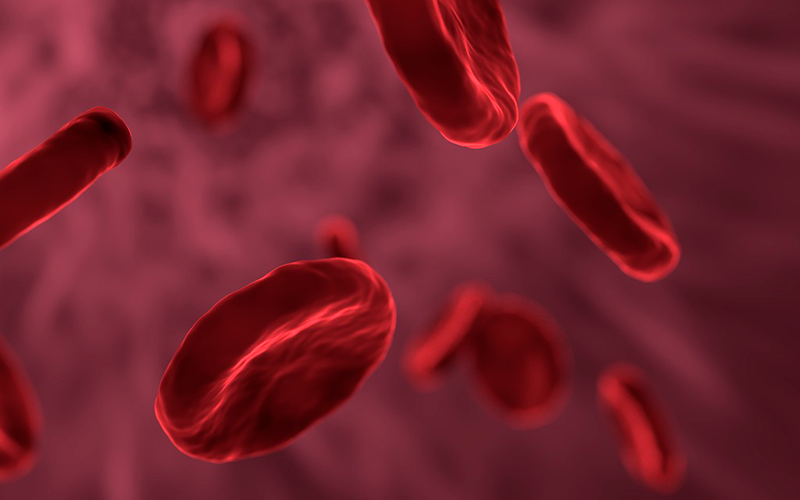Platelet Disorders
Platelets are the cells responsible for making blood clot so platelet disorders mean that injured blood vessels bleed more than usual and heal more slowly. This information from Great Ormond Street Hospital (GOSH) explains the causes, symptoms and treatment of inherited platelet disorders.
Note: Inherited platelet disorders including Bernard Soulier disease, Glanzmann’s thrombasthenia, Hermansky Pudlak syndrome, Jacobsen syndrome, Lowe syndrome, platelet release and storage pool defects, thrombocytopenia with absent radius (TAR) syndrome and thrombotic thrombocytopenic purpura (TTP) are covered here. Acquired platelet disorders – such as ITP or as a result of medication or as part of another condition – are not.
What is a Platelet Disorder?
Blood is made up of different types of cells (red blood cells, white blood cells and platelets) all suspended in a straw-coloured liquid called plasma. Platelets are the cells responsible for making blood clot. When a blood vessel is injured, platelets clump together to block the injury site. They also start off a complicated chemical reaction to form a mesh made of a substance called fibrin. This complicated chemical reaction always follows a strict pattern – with each clotting protein (known as a coagulation factor) turned on in order. When all of the factors are turned on, the blood forms a clot which stops the injury site bleeding any further.
Platelets – also called thrombocytes – are formed in the bone marrow from stem cells. Megakaryocytes (large bone marrow cells) are formed, mature and then die, which is when they release platelets. Over half of the new platelets circulate in the bloodstream and the rest remain in storage in the spleen. Platelets only live for just over a week, then the body destroys them and new ones are released.

What are Platelet Disorders?
There are lots of different groups of disorders affecting the platelets:
- Thrombocythaemia – where there are too many platelets in circulation
- Thrombocytopenia – where there are too few platelets in circulation
- Dysfunction disorders – where there are the correct number of platelets in circulation but they do not work properly
All of these disorders mean that the clotting process is disrupted so lead to abnormal clot formation and bleeding. Generally symptoms of a platelet disorder are similar, with bruising from minor trauma, bleeding from the mouth, nose or digestive system and excessive bleeding after injury or surgery. They may become apparent soon after birth when the umbilical cord is cut or later in childhood when teething or becoming more mobile.
What Causes Platelet Disorders?
The majority of platelet disorders are caused by a genetic fault or mutation. Human beings have about 30,000 to 40,000 different genes, each of which has a function in making an individual person. The genes are arranged in pairs (one of the pair from each parent) on 23 chromosomes – inevitably some of these genes are faulty.
The exact manner in which this mutation is passed on from parent to child varies depending on the specific platelet disorder – see below for the main ways disorders can be inherited. Unless there have been other affected people in the family there may be no way of knowing whether someone is a carrier, as most carriers remain healthy. In some cases, the gene mutation occurs sporadically (out of the blue), with no family history of clotting disorders.
Autosomal Recessive Inheritance
In most cases a mutation in an autosomal gene does not cause problems if the equivalent gene on the other of the pair of autosomes is normal. However, if someone inherits a faulty gene from both mother and father, they may be affected. These are known as ‘autosomal recessive’ disorders, which means that a child has to inherit the faulty gene from both parents to have the condition. Each pregnancy carries:
- A 25 per cent chance that the child will be unaffected and will not carry the mutation
- A 50 per cent chance that the child will not be affected but will carry the mutation
- A 25 per cent chance that the child will be affected
People who carry one copy of the faulty gene are said to be a ‘carrier’. The majority of carriers are healthy but occasionally, ‘affected carriers’ may show mild symptoms of the condition, which may or may not need treatment.
Autosomal dominant inheritance
Some platelet disorders can be caused by a gene mutation being passed on in an autosomal dominant manner, which means that that a child has to inherit the faulty gene from just one parent to have the condition. Each pregnancy carries:
- A 50 per cent chance that the child will be unaffected and will not carry the gene mutation
- A 50 per cent chance that the child will carry the gene mutation and will have the condition
X-Linked Inheritance
The chromosome that determines the gender of the child will either contain ‘XX’ (female) or ‘XY’ (male). As females have two ‘X’ chromosomes, a fault on this chromosome can be completely or partially overcome by the other healthy ‘X’ in the pair. However, in males, who only have one ‘X’, there is not another ‘X’ to provide a functioning gene. This means that only boys are affected by x-linked disorders and the mother is a carrier of the disease. Each pregnancy carries a:
- 25 per cent chance of the child being an unaffected non-carrier girl
- 25 per cent chance of the child being an unaffected carrier girl
- 25 per cent chance of the child being an unaffected boy
- 25 per cent chance of the child being an affected boy
Unless there have been other affected boys in the family there may be no way of knowing whether the mother is a carrier, as most carriers remain healthy.
In some cases, the gene mutation occurs sporadically (out of the blue), with no family history of clotting disorders.
If you Have Any Queries, Call Us On
+91-8193809030
